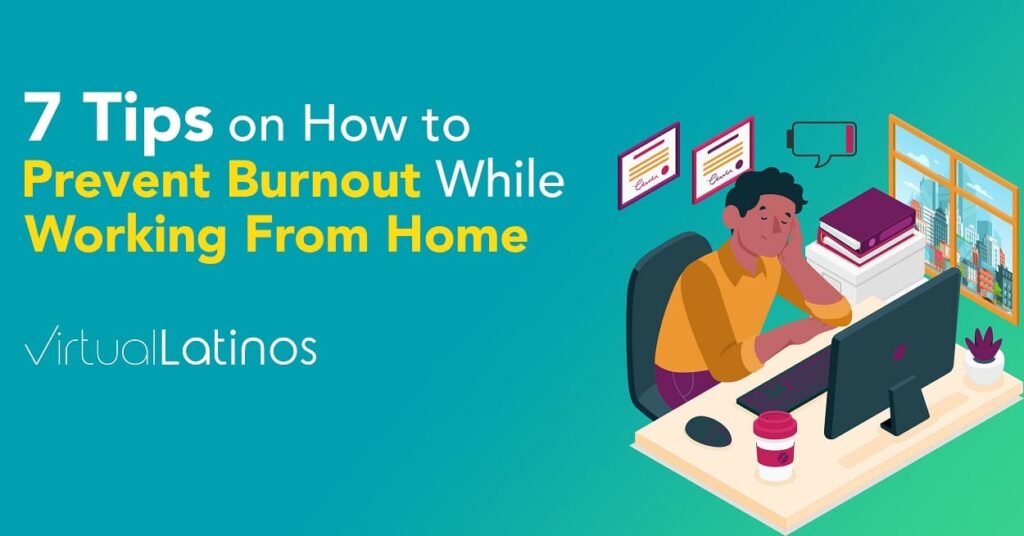Table of Contents
ToggleWork From Home Burnout refers to the physical, emotional, and mental exhaustion experienced by individuals who work remotely, often stemming from prolonged periods of working in isolation, blurred boundaries between work and personal life, and the challenges of maintaining a structured routine outside a traditional office environment. This type of burnout is characterized by symptoms such as persistent fatigue, decreased motivation, feelings of detachment from one’s job, and reduced work performance.
To combat Work From Home Burnout, it’s essential to establish clear boundaries between work hours and personal time. This can be achieved by setting a consistent work schedule, designating a specific workspace at home, and taking regular breaks throughout the day. Additionally, staying connected with colleagues through virtual meetings, seeking support when feeling overwhelmed, and incorporating physical activity or relaxation techniques into one’s daily routine can significantly help in alleviating the symptoms and preventing the onset of burnout.
Let’s discover more about the causes and solutions for this common problem.
Causes of Your Work From Home Burnout
Lack of Work-Life Boundaries
One of the primary causes of work from home burnout is the absence of clear boundaries between professional tasks and personal responsibilities. When your home doubles as your workplace, it becomes challenging to “switch off” from work. Without a distinct separation, individuals often find themselves working beyond regular hours, leading to exhaustion. It’s crucial to designate specific work hours and stick to them to maintain a healthy work-life balance.
Isolation and Loneliness
Remote work, while offering flexibility, can also lead to feelings of isolation. Many individuals thrive on the daily social interactions that a traditional office setting provides. When these interactions are limited or non-existent, it can result in feelings of loneliness and detachment. Over time, this isolation can weigh heavily on one’s mental well-being, contributing significantly to burnout.
Overworking
The convenience of having your office a few steps away in your home can be a double-edged sword. It’s easy to fall into the trap of just doing “a bit more work,” which can quickly add up. The absence of a physical distinction between work and home often leads to extended work hours, reducing the essential downtime needed for relaxation and recovery.
Distractions at Home
While working from home, one is surrounded by a myriad of potential distractions, from household chores to family members and pets. These continual interruptions can make maintaining focus on work tasks challenging, often leading to extended workdays. Over time, this can result in increased stress levels and a feeling of never “switching off.”
Pressure to Prove Productivity
There’s sometimes an underlying pressure for remote workers to prove they’re as productive at home as they would be in an office setting. This pressure can lead to overcompensation, with individuals taking on more work than necessary, leading to unnecessary stress and a fast track to burnout.
Lack of Physical Activity
The shift to remote work often means less daily movement. Gone are the days of commuting, walking to meetings, or even taking a stroll to a colleague’s desk. This decrease in physical activity can lead to both physical and mental lethargy. Regular movement is crucial for overall well-being, and its absence can contribute to feelings of exhaustion.
Unclear Communication
Remote work relies heavily on digital communication. Without regular face-to-face interactions, there’s a higher chance for misunderstandings or misinterpretations. Continually having to decipher or clarify instructions can be mentally taxing, leading to increased frustration and, over time, burnout.
You Might Also Like:
Signals of Virtual Burnout
There are several signals that can indicate that you are experiencing virtual burnout. Some of the most common symptoms include:
Extreme exhaustion
This is defined as feeling exhausted both physically and emotionally to the point that you feel like you can’t keep going.
Inability to focus
This can manifest as struggling to pay attention to anything or struggling to focus on one task for an extended period of time.
Muscle pain or headaches
This can be a sign that you’re working too hard and not taking proper breaks.
Tension
You may be feeling tense or on edge for no specific reason.
Insomnia
Struggling to sleep or not feeling rested after sleeping.
Frustration
Feeling irritable or impatient more often than usual.
Grumpiness
Having a generally negative attitude towards work, people, and the world in general.
Tips on How to Prevent Burnout While Working Remotely
1. Setting boundaries and limits
It’s important to set boundaries for yourself whether you’re working in an office or from home. This includes setting time limits for how long you’ll work each day and taking appropriate breaks.
2. Setting a schedule between work and family life
Without a clear distinction between your working hours and personal time, work can quickly overwhelm your schedule. You may begin to miss out on important events in your personal life due to work, leading to disappointment and burnout.
3. Take time off
Just as you would when working in an office, it’s important to take time off for vacations and sick days. When you’re burned out, you may find it difficult to take a day off because overworking is the reason that you’re burned out in the first place. However, it’s essential to your mental health to take a break every once in a while.
4. Change your environment
If you’re finding that you’re struggling to focus or are feeling overwhelmed in your home office, it might be time to change your environment. Take a step outside or even just sit in a different room within your home. While working remotely, it’s also possible to work from almost any location, whether it’s a coffee shop or a friend’s home. Sometimes a change in scenery is all you need to get the creative juices flowing again.
5. Talk openly about your feelings
When you’re feeling burned out, it’s important to talk openly about your feelings with your supervisor, coworkers, family, or friends. This will help create a support system and ensure that you’re not struggling alone.
6. Stay connected
Working from home can easily lead to feeling isolated. It’s important to stay connected with your coworkers, friends, and family. This can be done through email, messaging, or even video chatting. When you’re feeling overwhelmed, it’s nice to have someone to talk to who understands the situation.
7. Invest in self-care
Investing in your self-care can be beneficial to your mental and physical health. This includes taking time for yourself, doing things you enjoy, getting adequate sleep and exercise, and eating a balanced diet. When you’re feeling burned out, it’s easy to let your self-care routines fall by the wayside. However, it’s vital for your well-being.
If you’re working from home and find that the isolation is causing your productivity to decrease or you’re feeling overwhelmed, it’s crucial to take steps to prevent burnout. As with any job, there may be challenges such as balancing work and personal life and setting boundaries between these two aspects of our lives. To have a healthy personal and professional life, we need time off for self-care routines to protect ourselves from burnout.
Why Is It Important to Prevent Work From Home Burnout?
Burnout from working from home can be just as damaging to your career as on-site burnout. The consequences include:
Decreased productivity
When you’re burned out, your productivity drops because you’re not able to focus or you’re taking longer to do the same tasks.
Decreased creativity
Feeling overwhelmed and stressed can put you in survival mode, dampening or completely blocking your creative ability.
Inability to maintain relationships
The symptoms of burnout could prevent you from developing and maintaining relationships essential to your career and your personal life.
Lack of job satisfaction
This can be due to feeling like you’re not doing enough, struggling to focus, or feeling isolated.
If you’re experiencing any of these symptoms, it’s essential to take steps to prevent burnout from happening and protect your mental health. Our mental health is vital to our overall well-being. When it’s disrupted, it can lead to any number of negative consequences that will bleed into our personal and professional lives, causing chaos.
Looking for Remote Opportunities in Amazing US Companies?
Looking for a new, rewarding work-from-home career in Latin America? Discover the opportunities that only Virtual Latinos provide to experienced professionals from Latin America. Apply Today







